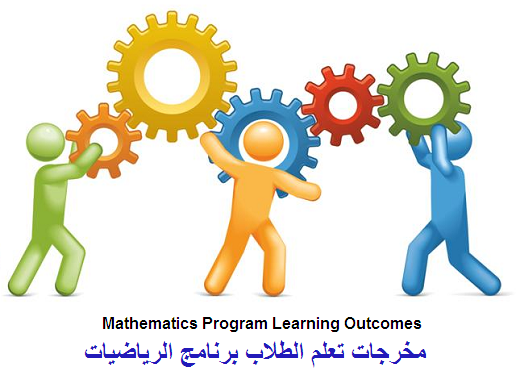Mathematics Program Learning Outcomes

|
Student learning Outcomes |
CODE |
Domain |
|
|
On successful completion of this programme, students would be able to |
|||
|
Recognize and define the fundamentals and concepts of mathematics. |
a1 |
Knowledge Facts Concepts, theories Procedures |
A |
|
Describe fundamentals and concepts of General sciences and Computer skills. |
a2 |
||
|
Continue to acquire and apply mathematical and statistical knowledge and skills appropriate to professional activities |
a3 |
||
|
|
|
|
|
|
Construct mathematical arguments and proofs and apply the underlying unifying structures of mathematics. |
b1 |
Cognitive Skills
Apply skills Creative thinking and problem solving |
B |
|
Develop and nurture critical thinking skills to solve problems that can be modeled mathematically |
b2 |
||
|
|
|
|
|
|
Demonstrate the work independently and within a team |
c1 |
Interpersonal Skills
and Responsibility Responsibility for own learning Group participation and leadership Act responsibly-personal and professional situations Ethical standards of behaviour |
C |
|
Illustrate and bear responsibility for different situations |
c2 |
||
|
Analyze and realize the codes of ethics and their importance. |
c3 |
||
|
|
|
|
|
|
Communicate mathematical ideas, both orally and in writing |
d1 |
Communication IT
and Numerical Skills Oral and written communication Use of IT, Basic maths and statistics |
D |
|
Critically interpret numerical and graphical data. |
d2 |
||
|
|
|
|
|
|
N. A. |
… |
Psychomotor Skills |
E |
|
|
|
|
 Presentation from Work-Shop About Learning outcomes and KPI's
Presentation from Work-Shop About Learning outcomes and KPI's
















